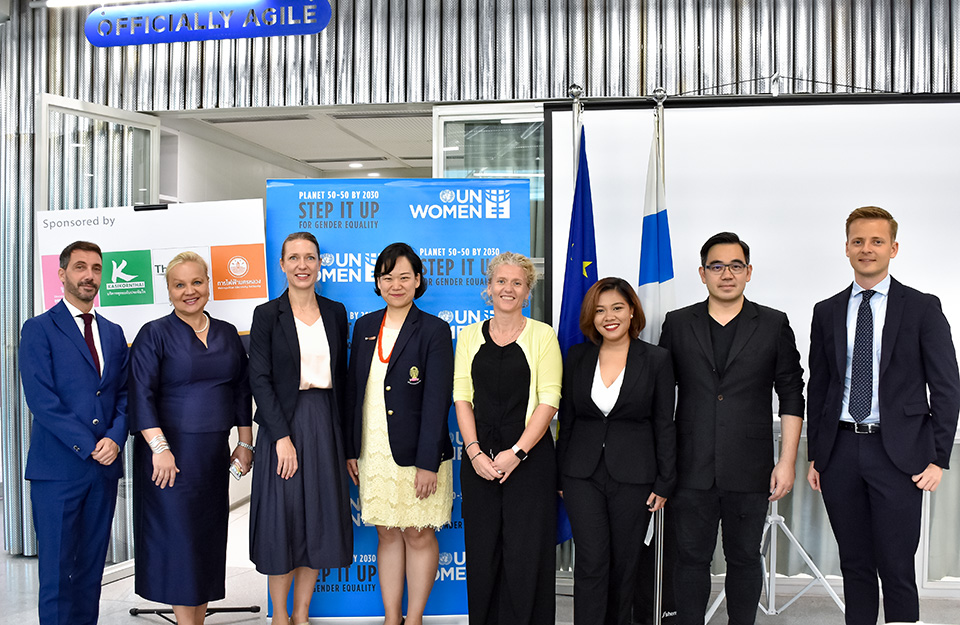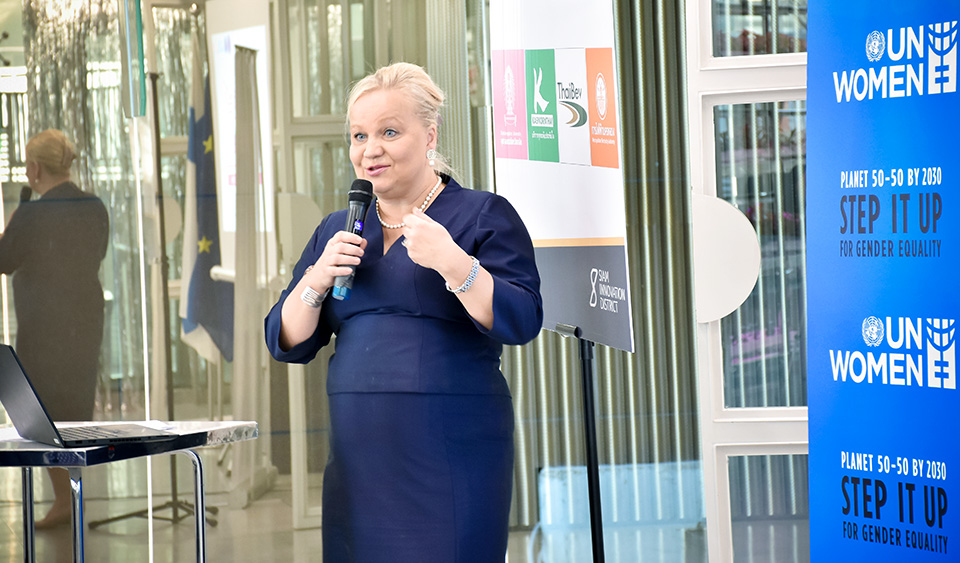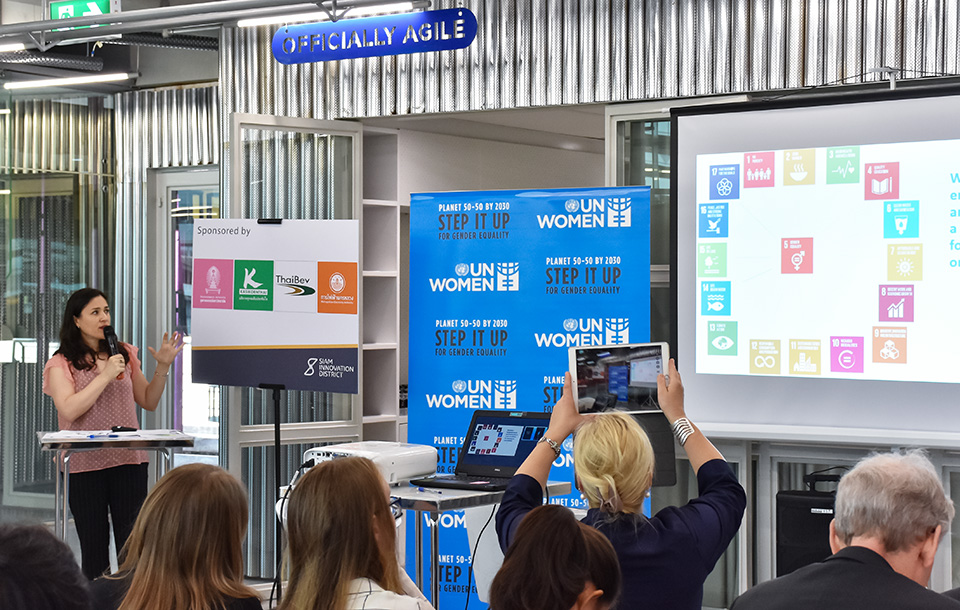Encourage innovation to promote gender equality, urges a UN Women-supported seminar
Date:
Authors: Jessica Onion and Saranya Chittawong
Bangkok, Thailand — How can technological and social innovations improve the lives of women and girls in Asia?
Experts discussed this question at a 23 April seminar that UN Women organized in partnership with the Embassy of Finland, the European Union (EU) Delegation to Thailand, and Chulalongkorn University. About 50 people including Chulalongkorn students attended the seminar, held at Siam Innovation District, a project spearheaded by the university.

UN Women’s acting Regional Director, Anna-Karin Jatfors, told the gathering that UN Women has been working to reduce violence against women in public spaces by supporting the roll-out of the Safetipin app in India, Papau New Guinea and the Philippines. The app collects and shares crowdsourced data on safety concerns in cities, such as lighting and visibility in particular areas. The app enables women to make informed decisions about travelling, and provides governments with information that they can use to develop urban planning and infrastructure that meet women’s safety needs.
Jatfors highlighted the importance of innovation and creativity in achieving gender equality and the United Nations Sustainable Development Goals for 2030. “We need to harness the energy, creativity, and innovation of all people in shaping the solutions for tomorrow,” she said.

Satu Suikkari-Kleven, Ambassador of Finland and EU Gender Champion in Thailand, presented examples of innovations that have boosted the status of women in European countries:
- Social innovations such as parental leave that encourage gender equality at home and at work; in Sweden, 80 per cent of fathers take paternity leave.
- A project in Portugal called Engineer for a Day that encourages girls to study STEM (science, technology, engineering and mathematics) industries at universities.
- An app created in Denmark called Safe Delivery that gives women in rural areas of lower-income countries more access to medical information during childbirth.
“Combatting violence against women and girls is an area where many more innovations are needed to tackle the magnitude of this problem,” the ambassador said.
The good news is that Asian women are leading in innovation – They head 70 per cent of social enterprises in South-East Asia, said Natcha Thawesaengskulthai, Vice President for Innovation and New Developments and Associate Professor of Industrial Engineering at Chulalongkorn University.
At the seminar, UN Women also shared ideas on how to increase women’s political participation in Thailand.

Research by UN Women and the Inter-Parliamentary Union found that in January 2019, the average representation of women in parliament in Asia was only 19.6 per cent and in the Pacific 18.4 per cent. In Thailand, representation was one of the lowest in the region, only 5.4 per cent.
UN Women recommended remedying this by introducing quota systems and challenging stereotypes and social norms that prevent women from entering politics. UN Women supports movements against negative stereotyping -- such as #MeToo and #DontTellMeHowToDress in Thailand -- that have spread through social media.
“One of the key takeaways from this seminar is the power of women mobilizing together,” said Alison Davidian, a UN Women programme specialist on Women, Peace and Security.